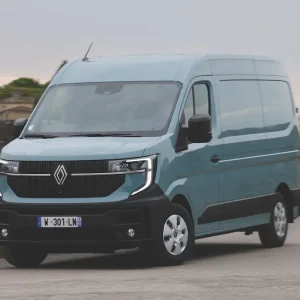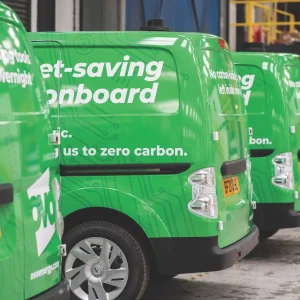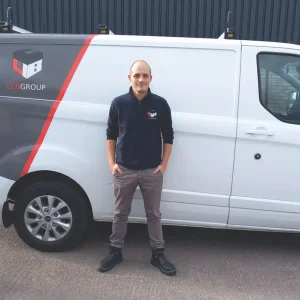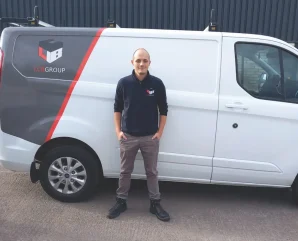
The inaugural winner of this award, sponsored by National Highways, is Sean Hewings, fleet manager for the LCB Group.
Taking an axe to excessive repair and maintenance expenditure at the buildings maintenance and construction company is one of the key reasons why Hewings, has come out on top.
Responsible for more than 300 light commercials, he discovered that the business was spending over £100,000 annually maintaining and repairing vans more than five years old, which made up 25% of the fleet. “This accounted for more spend than the remaining 75%,” he said.
As a consequence, he drew up a plan to replace light commercials once they reached their fifth anniversary, meaning more vehicles are covered by warranty, repair costs fall, and they fetch better second-hand values.
Tasked with bringing his expertise to develop and modernise the fleet, Hewings says he was unaware of the vast amount of work required until he discovered compliance issues with several vans either being uninsured, not road legal or both.
Hewings sorted through more than 3,000 physical invoices relating to van repairs completed by “the local garage” during the previous 48 months while bringing to light the disproportionate expenditure on older light commercial vehicles.
As a result, Hewings proposed a business plan to reduce unnecessary spend on vans once they hit five-years old. He instigated a van renewal programme to exchange old vans for new models, thereby reducing the overall spend on maintenance and repair and enabling the remarketing of vans, leaving the fleet to inject cash back into the annual fleet budget to go towards deposits on new vans.
All vans of seven-years old were immediately replaced with five-year old vans being phased out within two financial years.
Hewings says that while business outlay was high initially, costs will be recouped by having more vans under warranty for repairs, lower spend on variable repairs, and a return in profit after five years once the vans are remarketed.
Another pressing concern for Hewings was driver behaviour. LCB’s insurance renewal costs had spiked by more than 30%, adding £150,0000 to insurance premiums on the back of high accident rates over the 12 months before he joined the company at the end of 2023. The incident ratio per volume of drivers had hit 25%, meaning one in four drivers had been involved in a company vehicle related accident. This included seven van write offs.
Using telematics data Hewings generated driver behaviour scores and found most drivers involved in accidents were registering low scores.
In April 2024 Hewings initiated a monthly internal Driver Improvement Programme.
Using telematics data, Hewings was able to pinpoint where each driver was scoring poorly, whether through harsh braking, harsh acceleration, dangerous cornering, speeding or a combination of all. Feedback is provided in group discussions to improve driver behaviour. Prior to the programme 33% of drivers were scoring a C (on a scale of A to F) or higher but by August 2024 this had risen to 85% with 70% achieving an A grade. Accident rates have decreased by 70%, resulting in knock-on benefits such as reduced tyre and fuel spend.
Finally, Hewings has secured a deal with telematics supplier Trakm8 to fit forward-facing cameras in all fleet vans to further reduce insurance costs.
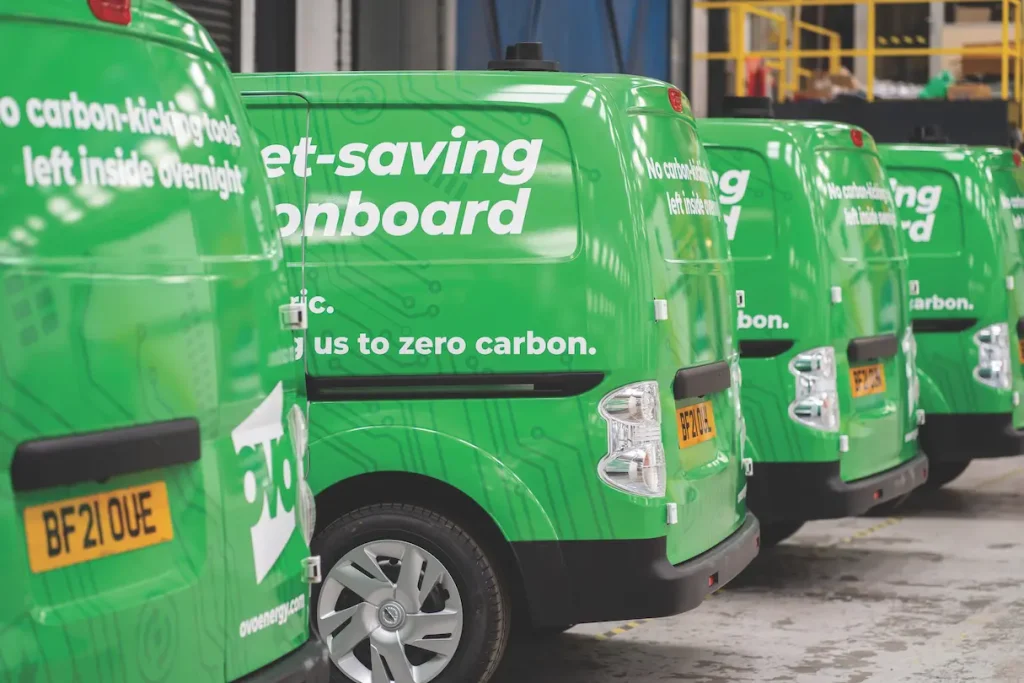
Highly Commended: S-J Mitchell, OVO Energy
S-J Mitchell has put in place an effective plan to convert OVO Energy’s fleet to zero-emission fuel. The transition to battery-electric began in 2020. By 2022 just under 50% of the OVO fleet was electric. The number of electric vans in operation rose by 237% between 2021 and 2022. While average van CO2 emissions totalled 144.03g/km in 2021, they had fallen to a mere 6.6g/km by September 2024. OVO has installed 280 charging points at the homes of mobile engineers who drive its electric vans. At the end of 2024 the fleet was 96% electric with the aim of hitting 100% by the end of 2025.

